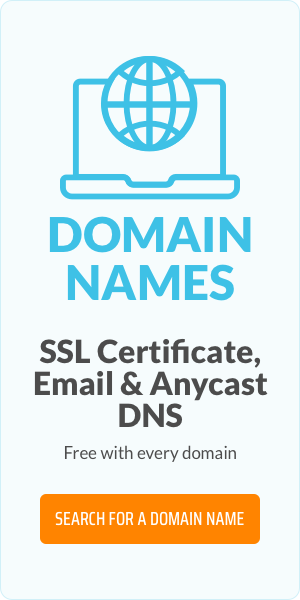The End of the .IO Domain? (2025 Update)

Have you heard the news? The beloved .io domain might soon be a thing of the past! If you own a website with this domain, should you be worried? Let’s dive into the details.
What’s happening?
On October 3, 2024, the British government announced its decision to transfer control of the Chagos Islands to Mauritius. That move raised questions about the future of the .io domain, which is tied to the ISO country code for the Chagos Islands.
The islands have a painful history: in the 1960s, the British forcibly evicted native Chagossians to make way for a U.S. military base. The community has pursued justice ever since, and the recent political development is seen by many as a step toward addressing past wrongs.
Why is the Internet talking about it?
The .io domain has become especially popular among tech startups and gaming platforms. Well-known examples include GitHub.io and itch.io. Its appeal is amplified by the computing shorthand “I/O” (input/output), and cultural visibility from events like Google's I/O conference, giving it a tech-savvy cachet.
That popularity masks a structural fact: .io is a country-code top-level domain (ccTLD). If the geopolitical entity associated with a ccTLD changes significantly, the domain’s status can be uncertain. Past analogues include Yugoslavia’s .YU, which was phased out and split into .RS (Serbia) and .ME (Montenegro).
Beyond tech symbolism, .io's brevity and memorability make it a favorite for brands aiming to appear modern and cutting-edge. Any instability in its governance could disrupt branding for many businesses.

What does this mean for you?
If your site uses a .io domain, there’s no need to panic. Online buzz—fueled in part by discussions on places like Hacker News— often lacks the full legal and procedural context. The domain remains operational and has not faced any formal threat of retirement as of mid-2025.
Our take
Luc Seufer, our Chief Legal Officer, assesses the risk of .io being retired in the near term as very low. The ISO 3166 Maintenance Agency, which governs country codes used for ccTLDs, cannot unilaterally remove .io; it requires an official request to act. Absent such a request, the code stays active.
Even if a request were submitted, .io could be placed on the “exceptionally reserved codes” list—the same mechanism previously used for SU (former USSR), AC (Ascension Island), and UK (United Kingdom)—which would preserve its eligibility.
It’s also unlikely Mauritius would push for outright removal. They may instead seek to capture a share of the domain’s revenue stream. Given that Identity Digital (a major registry operator) and a private equity owner currently control .io, they have strong incentives to defend its value.
A plausible political compromise would be Mauritius granting a form of sovereignty or special status to the Chagos Islands, maintaining continuity and keeping the .io namespace viable.
Youtuber Theo - t3․gg dives into the current situation.
2025 Updates
As of mid-2025, the .io domain remains stable. No technical or administrative changes have been enacted. Diplomatic talks between the UK and Mauritius are ongoing, but there have been no formal submissions to reassign or retire .io, and the registry continues under Identity Digital’s control.
How to future-proof your brand (just in case)
If your startup, app, personal portfolio, or platform depends on a .io domain, proactive steps now can reduce risk later. The situation doesn’t require alarm, but preparation is prudent.
- Review your domain reliance: Determine how central
.iois to your brand identity. If it's foundational, build contingency plans early. - Secure backup domains: Register your brand on stable alternatives like .com, .net, or .tech. Even unused, they provide strategic flexibility.
- Plan migration: Prepare for seamless transition with SEO redirects, infrastructure adjustments, and brand alignment so that if change becomes necessary, friction is minimal.
- Consult experts:Domain professionals can audit your setup, recommend alternatives, and help you stay ahead of geopolitical uncertainty.
Conclusion
While .io is unlikely to disappear, now is a smart time to audit your domain portfolio and understand potential exposure. Recall how .ly users were exposed to local regulatory risk due to Libya’s governance—few anticipated that dependency. For maximum resilience, consider owning a namespace you control (e.g., io.google) so your core identity is insulated from external shifts.
Fun facts
According to DomainNameStat, there are over 1.6 million .io registrations versus just 24,731 for .mu (Mauritius). That means the internet footprint tied to .io far exceeds that of its current sovereign association.
Reasons for .io's Popularity and Potential Risk
- Tech cachet: Its association with “I/O” and visibility via tech brands and conferences makes it attractive to developers and startups.
- Branding appeal: Short, memorable, and modern—ideal for companies seeking a cutting-edge image.
- Structural risk: As a ccTLD tied to a geopolitical entity, changes in sovereignty or administrative control introduce uncertainty, as seen in past transitions like
.YU.
90-Day SSL Certificates: What’s Changing and How to Stay Ahead
Related articles:
